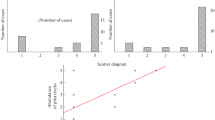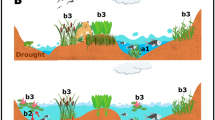Abstract
The Pearl River Delta offers humans a variety of land-use alternatives. A complex ecosystem which has been in existence in the Delta for centuries has greatly contributed to the region's agricultural productivity. The principal components are mulberry trees, silkworms, pond fish, and humans, interrelated in a harmonious and mutually beneficial way. The system is not only highly efficient and soundly balanced ecologically, but provides much higher economic returns than do other agrarian practices in the Delta.
Similar content being viewed by others
Author information
Authors and Affiliations
Additional information
This paper—one of the first to appear in the West by a Chinese ecologist—describes a form of land use which is both environmentally and economically beneficial. Whether the system, or part of it, can usefully be duplicated elsewhere in the developing world may deserve some further study. —Laurence J. C. Ma, Department of Geography, University of Akron, Akron, Ohio.
Rights and permissions
About this article
Cite this article
Gongfu, Z. The mulberry dike-fish pond complex: A Chinese ecosystem of land-water interaction on the Pearl River Delta. Hum Ecol 10, 191–202 (1982). https://doi.org/10.1007/BF01531240
Issue Date:
DOI: https://doi.org/10.1007/BF01531240




